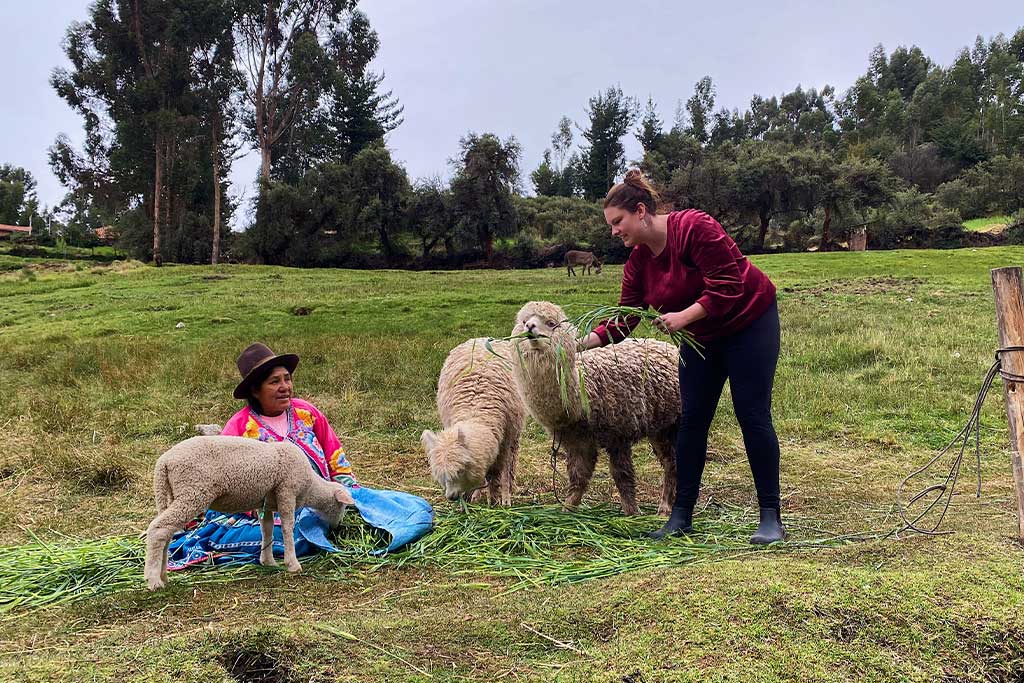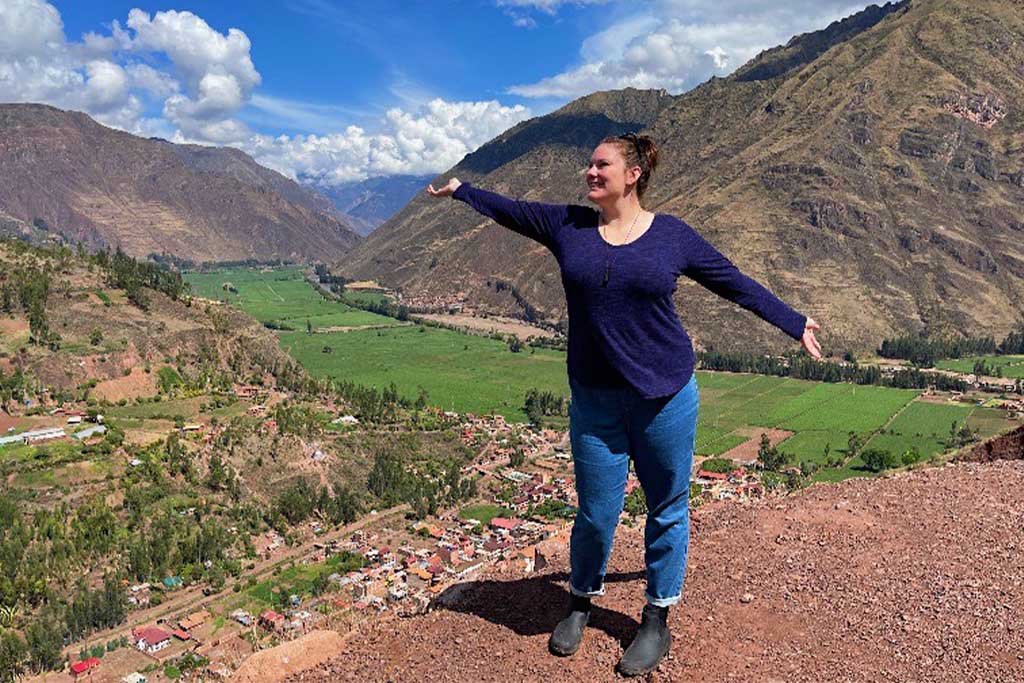My name is Jenna Lee Goodall and I am from Maine. Yes, the lovely New England state with delicious corn chowdah and all the fresh lobster you could imagine! I have a BA in Psychology and an MA in International Education and Anthropology. I love to travel and learn about new cultures. So far, my favorite places are Egypt, Ireland, the Netherlands, and, of course, Peru! I love to write and take photos, so I started an Instagram account that documented my adventures in Peru. I continue to keep it active with more Peru memories and upcoming travel. You can check out my account here: wanderwithjennalee

What encouraged you to take the TEFL certification course?
Taking the TEFL certification course has increasingly crept into my mind’s eye throughout my evolving career as I discover my love for teaching. It began when I studied abroad in Ireland for my first semester of college just two months after I turned 18. When I returned, I had a new found love for travel and culture, which I didn’t stop reaching for. I worked as a student assistant at the Global Education office at my university and served as a liaison to the ESL students working towards enrolling in the university. I observed their classes out of sheer curiosity and admired the relationships that the teachers had with their students. From then on, I knew this was something that I could see myself doing. For the past two years, I somehow got sucked into the corporate world, which I knew just wasn’t for me. After all the stress from my job and isolation from the COVID 19 pandemic, I decided to quit my job, take the plunge, and enroll in the course. I chose to take back my happiness.
How did you decide the Hybrid program was the right fit for you?
The Hybrid program worked out perfectly for me because of the onsite component and program cost. The most affordable option is online, but I knew that I would not get the face-to-face experience that I knew that I needed to feel confident and excited about becoming a teacher of English. I wanted part of the experience to allow for me to immerse myself into a new culture and have adventures during the course and Peru was the perfect choice! The Hybrid course was more affordable for me and I also started a travel fundraiser that helped with my travel costs.
Do you plan to teach English abroad or online?
For now, I plan to teach English online. During my practical teaching week, I taught a class online and was able to successfully build rapport and teach creatively, which eased all of my concerns. In the future, I am sure I will teach abroad because with this new certification, the world is my oyster!

Did you have any previous training or related experience?
While I have never taught English before, I have experiencing with teaching and working with international students. I have a Master of Arts degree from the University of British Columbia where I published and presented a dissertation that drew upon qualitative and ethnographic research methods to build on research in international education and student mobilities. More specifically, it looked at how Saudi students navigate cultural, social, and gender differences. While I was studying, I worked as a Graduate Teaching Assistant for the Anthropology department. In any role I have had, I always ended up training, mentoring, or coaching in some way.
What did you find most challenging about the hybrid course?
The most challenging part of the Hybrid course was the English Grammar review component. I learned the modules, took the tests, and completed the tasks independently during first half. This worked well for me for most of the modules, but the grammar sections were more challenging to learn in this way. As an auditory learner, discussing the forms and functions in class seemed to be essential for my comprehension. Luckily, TEFL teacher Sean was more than happy to give me some extra grammar lessons when I joined the class on site!
What do you wish you would’ve known before taking your TEFL course?
My course was a near flawless experience. I enjoyed it and worked hard. There isn’t anything I wish I had known, per se, but I did not expect the teaching techniques and styles to be so different from anything that I had ever used. As a master at explaining and talking, it was quite difficult to retrain myself using the ESL techniques. I had to learn to talk much less and how to ask questions to steer students to discover the answers themselves. It took a lot more patience and gradual improvements than I predicted. Through feedback and perseverance, I nailed it!

Were you able to find a job immediately after graduating?
After my TEFL course ended, I decided to stay for an extra week in Cusco to take the Spanish Immersion course. I just arrived home this week, so I am in the process of exploring different avenues! I feel confident that I will have a job teaching shortly.
Do you think a TEFL certificate should be required to teach English?
I believe that that in many circumstances, a TEFL certificate should be required. Sometimes, however, I do not think that it is needed. For example, a certification should not be required for teaching conversational English to a host family or at a summer camp, but should be required for a structured class with a set schedule. In any situation, the TEFL course is extremely helpful for anyone who wants to teach English as it provides the proper building blocks and tools for success for both student and teacher.
Are you considering teaching English in the long run?
Teaching English will always be something that allows me freedom to travel the world and practice my love for teaching. I see myself utilizing this the rest of my working life. My dream job is to be an International Student Advisor at a university, so I am always trying to reach this goal. Life is unpredictable and takes you down many different, unexpected paths, so for now, I will continue to work hard at doing what I love and trust the process!
